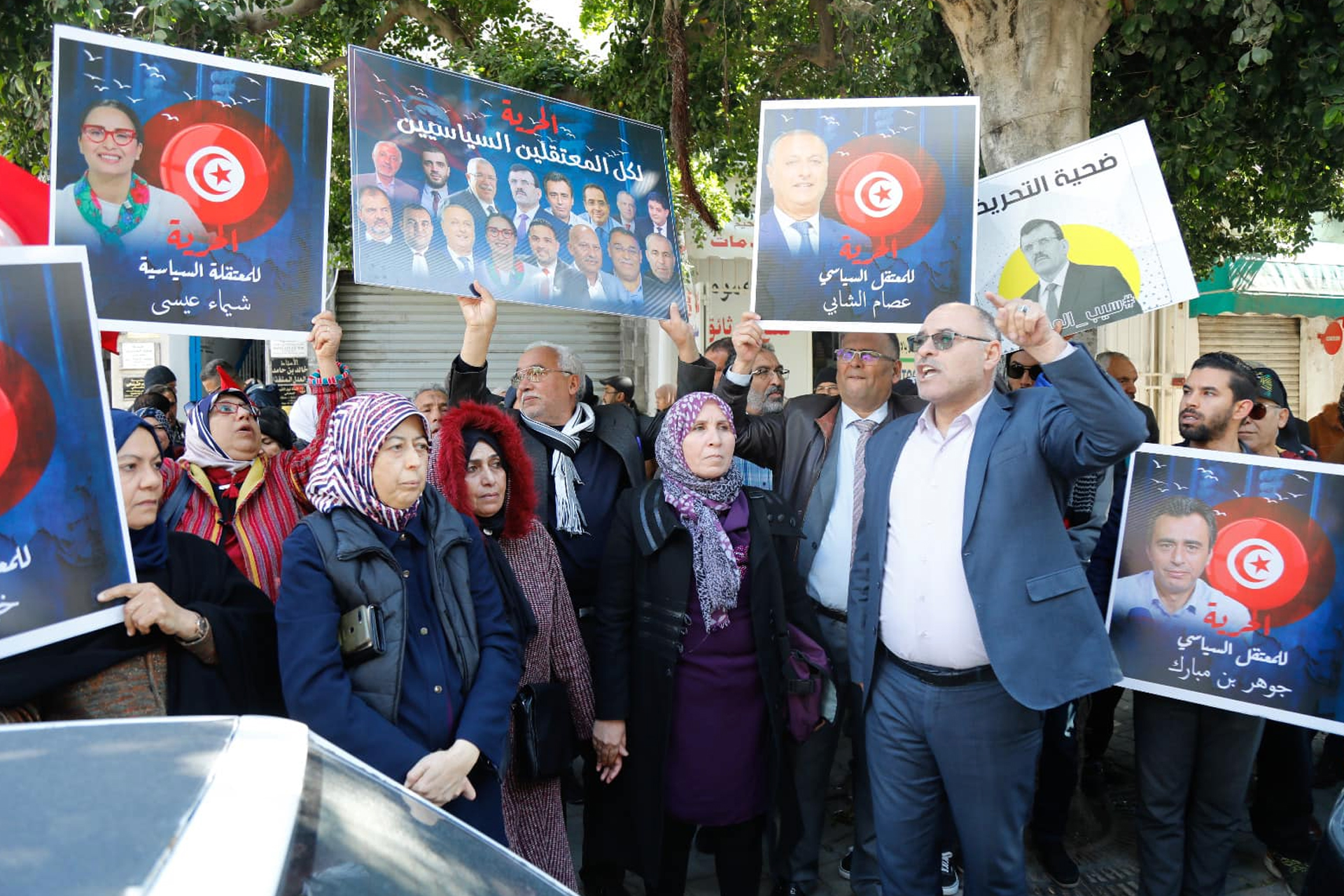Lawyers reported that 3 Tunisian opposition leaders started a hunger strike today, Friday, to protest what they described as the authorities' "abuse" of them in prison.
Lawyer Islam Hamza confirmed that her three clients - who are the leader of the opposition National Salvation Front, Jawhar bin Mubarak, the racing minister, Khayyam al-Turki, and the former Secretary-General of the Democratic Current Party, Ghazi al-Shawashi - are on hunger strike.
The security forces arrested these opponents about two weeks ago and charged them with "conspiracy against state security," while lawyers and politicians said they were arrested because of meetings aimed at uniting the opposition.
In a post on his Facebook page, the leader of the National Salvation Front, Jawhar bin Mubarak, announced that he had entered a hunger strike because of what he considered the prison administration's intention to abuse him and change his place of residence in conditions he described as very bad, with instructions from what he described as the power of the coup.
The lawyer and member of his defense team, Karim Al-Marzouqi, considered that the entry of some detainees into a hunger strike is a cumulative result of what has been happening to detainees for two weeks in prison.
Al-Marzouki said, in a post on Facebook, that the decision to abuse the detainees is a clear political decision to humiliate them.
The son of the former minister and former Secretary-General of the Democratic Current Party, Ghazi Chaouachi, had confirmed earlier that his father had entered a hunger strike, rejecting what he described as a policy of abuse in prison.
Chaouachi held, in a post, the prison security personnel, its director, the investigating judge, the Minister of Justice, and President Qais Saeed responsible for his health.
The campaign of arrests affected many politicians, especially from the National Salvation Front, and in parallel, the authorities referred trade unionists to trial.
In the context, the National Association of Tunisian Lawyers announced on Friday the formation of a defense committee for the lawyers included in the prosecution in all files.
Imprisonment decisions and new arrests
Meanwhile, today, Friday, a judge issued a decision to imprison the leader of the Ennahda Movement, Habib Al-Louz, who was arrested a few days ago.
In the same context, the wife of the dismissed judge, Bashir al-Akrami, confirmed that the investigative judge of the anti-terrorism judicial pole issued a decision to imprison al-Akrami, who was arrested on charges related to the investigations into the case of the assassination of leftist dissidents Shukri Belaid and Muhammad al-Brahmi in 2013.
Al-Akrami's wife, in contact with Al-Jazeera, described her husband's health condition as embarrassing because he had been on hunger strike for more than 24 days.
The defense committee for the dismissed judge, Bashir Al-Akrami, had previously condemned what it called the systematic abuse of her client because of the judicial decisions he had taken, and in an effort to silence his voice and obliterate the facts to which he invoked, as she put it.
Simultaneously, the Ennahda movement confirmed the arrest of the official of its office in Beja Governorate (northwest), a number of office members and a trade unionist, and that they were taken to an unknown destination.
The movement denounced what it described as arbitrary arrest and what it considered a systematic targeting to intimidate, intimidate, and block the way for the activities of the Salvation Front.
The movement called for the immediate release of detainees, respect for public and individual rights, and not to involve the security forces in political disputes and disputes.
Tunisian opposition forces accuse President Qais Saeed of establishing an authoritarian regime and suppressing freedoms, but Saeed denies this and has repeatedly pledged to hold accountable those he says have committed crimes against the country.

